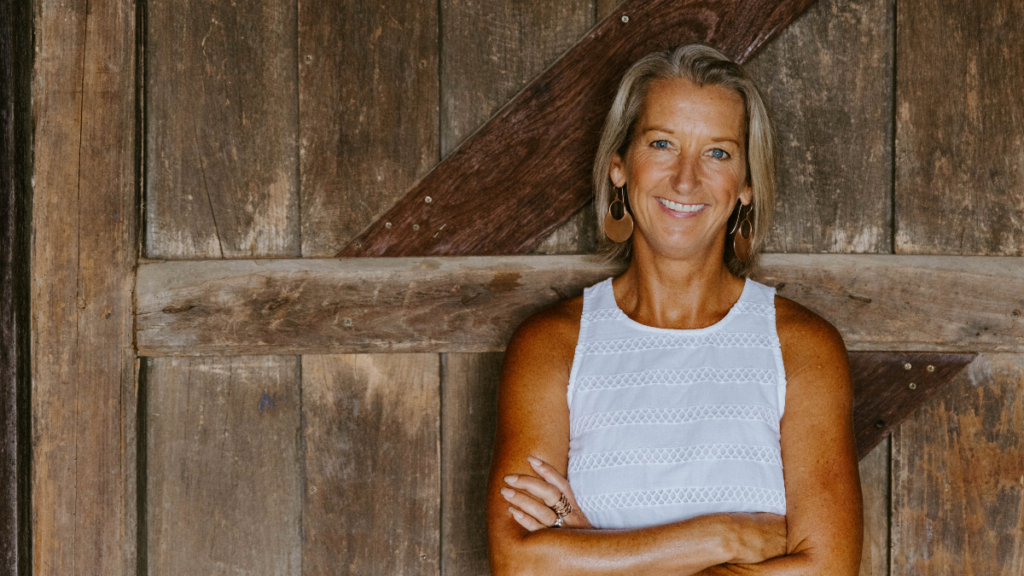
Four steps to creating personal boundaries
Early in my professional surfing career, I lacked the confidence to set healthy personal boundaries because I wanted to belong. We all have a deep desire to feel a sense of belonging because it makes us feel safe and significant. However, if belonging comes at a cost to any aspect of your well-being, boundaries certainly need to be established.
The sexism I suffered in the water, the criticism I endured from my peers and the chauvinistic attitude of the surfing industry was overwhelming. Yet, I failed to speak up because I didn’t want to upset the ‘boys’. I was afraid to make a fuss to avoid being rejected or ridiculed and rarely defended myself.
I was waiting for someone to permit me to be who I truly wanted to be. This resulted in self-doubt, self-sabotage and self-loathing. Why? Because the continuation of this behaviour compromised my values, which led to uncomfortable situations where I then blamed myself for the error in my ways. It was all my fault: guilt, shame, suffering. That’s why setting healthy personal boundaries is so important.
What are personal boundaries?
Personal boundaries are the mental, physical and emotional standards we set to preserve our way of life. These include how we allow ourselves to be treated, treat other people and show up for ourselves.
When it comes to your mental, physical and emotional health, what are your standards? Are you always busy and wearing this as a badge of honour? Are you struggling to find quality time to spend with loved ones and family? Are you buried under a mountain of stress and feeling overwhelmed?
If we find ourselves in situations that are incongruent with who we are, who we want to be or how we want to feel, this is an indication that we have failed to establish clear boundaries.
Why is it important to set personal boundaries?
To put it simply, setting boundaries asserts your self-worth. We set the standards by what we allow, and you are the only person responsible for establishing them.
From my perspective, when my health, quality of life or connection with loved ones is compromised, this indicates my life is out of balance, and boundaries are required. The trick here is identifying the triggers before life falls out of balance so we can take pre-emptive action.
Essentially, failing to set boundaries suggests I’m disregarding my values and desires while allowing other people’s feelings, desires and expectations to dictate the terms of my life. If I don’t value myself, I can’t expect anyone else to value me. Similarly, I can’t give to others what I am unwilling to give to myself.
Failing to establish boundaries will result in your time and energy consumed doing what others want you to do instead of what you want. But, if you don’t know what you want to do or how you want to feel, external circumstances will continue to dictate the terms of your life, including how you think, feel and behave.
Over time you will find yourself feeling burnt out and emotionally and physically exhausted, preventing you from consistently participating in activities you love with people you love.
Setting a healthy boundary means saying no when you mean no and saying yes when you mean yes. And it requires courage, compassion and commitment to upholding the boundaries you set for yourself.
The sign of firm personal boundaries, for example, includes saying no without feeling guilty, delegating work you can’t fulfil, not feeling compelled to respond to messages immediately and asking for help.
Take the time to notice and tolerate any uncomfortable feelings, as this will stop you from acting on them and prevent you from doing something you don’t want to do. Learning to accept your very normal feelings of discomfort gives us the space we need to gain clarity about our impulses to appease, be liked or be seen in any particular way.
You don’t need to appease anyone. You only need to be patient as your feelings change, like a swell rising and falling in the open ocean.
Otherwise, we fall victim to the barriers, also known as the excuses we create to rationalise our behaviour. Remember, rationalising means you are relying on rational lies to validate your choices. These rational lies create barriers to well-being because they keep us stuck in bad habits, and we fall victim to external pressures and demands.
What are the benefits of setting personal boundaries?
The benefits of setting healthy boundaries can include:
- more empathy and compassion for yourself and others
- less anger and resentment
- feeling respected and acknowledged
- having your needs met
- feeling safe and understood
- more time for things that nourish you
- increased focus, more energy and productivity
- greater self-esteem
- less stress
The only person responsible for setting acceptable standards for your life is you
Four steps to creating personal boundaries
If you’re ready to learn to say no and start prioritising your quality of life, here are a few things you can do to set healthy boundaries.
1. Think about your values
What area of your life requires the most attention? Work, family, health? Your values will determine the answer to this, so spend some time thinking about the values you live your life by and write them down. I recommend the book ‘The Values Factor’ by Dr John DeMartini as a useful resource to help you identify your values.
2. Set your standards
The only person responsible for setting acceptable standards for your life is you. When you think about areas of your life that aren’t fulfilling, how does this make you feel about yourself? Determine what you are and aren’t willing to accept moving forward.
3. Learn to say no
I have developed the ability to say no by honouring how I feel, then expressing thanks for the opportunity, apologising for not being available, and providing an alternative solution or suggesting my availability for any future opportunities. Essentially, I’m saying no, not now, which prevents me from feeling like I am letting someone down.
Ultimately, learning to say no to what we don’t want to do is learning to say yes to our values and choices. It helps other people understand who we are and where we are. It’s the foundation of all mutually respectful relationships.
4. Honour yourself first
Feeling like you’re letting people down hurts because we see ourselves through the eyes of our closest relationships and make sense of our lives through their actions. Realistically though, you can’t help everyone, and the best way to be of service to the world is by honouring yourself first.
Five boundaries you can set for yourself:
- No working past 7 pm
- Limit yourself to 2 cups of coffee per day
- Choose a book over social media when you’re bored
- Only purchase what is on your shopping list
- Connect with good friends weekly
Love Layne xx





Responses